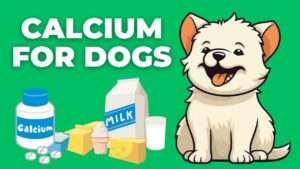Are you a devoted dog lover wondering if your furry friend can indulge in hazelnuts? Perhaps you’ve been snacking on these crunchy delights and wondered if your pup can partake. Well, you’re in the right place! In this comprehensive guide, we’ll explore whether hazelnuts are safe for dogs, potential risks, benefits, and the best approach to incorporating them into your pet’s diet.
Contents Overview
The Nutritional Value of Hazelnuts
Hazelnuts, with their rich, nutty flavor, are a popular ingredient in various culinary creations, from chocolates to spreads. But when it comes to our canine companions, dietary considerations are crucial. Let’s delve into whether hazelnuts can be a part of your dog’s snack menu.
Can Dogs Eat Hazelnuts?
The short answer is yes, dogs can eat hazelnuts, but with caution. While hazelnuts themselves aren’t toxic to dogs, there are factors to consider before offering them to your furry friend.
Hazelnuts: The Pros and Cons:
Pros:
- Nutrient Content: Hazelnuts contain essential nutrients like healthy fats, fiber, protein, and vitamins E and B.
- Antioxidants: These nuts are rich in antioxidants, which can benefit your dog’s overall health.
- Dental Health: Chewing on hazelnuts may help remove plaque and tartar buildup, promoting better dental hygiene.
Cons:
- High-Fat Content: Hazelnuts are high in fat, which can lead to gastrointestinal upset and pancreatitis in dogs if consumed in large quantities.
- Choking Hazard: Hazelnuts are small and hard, posing a choking risk, especially for smaller breeds.
- Potential Allergies: Some dogs may have allergic reactions to hazelnuts, leading to symptoms like itching, vomiting, or diarrhea.
Safe Consumption Guidelines
Before sharing hazelnuts with your furry friend, consider these guidelines to ensure their safety and well-being:
- Moderation is Key: Offer hazelnuts to your dog in moderation, as an occasional treat rather than a regular snack.
- Avoid Added Ingredients: Ensure the hazelnuts are plain and unsalted, without any added flavorings or coatings, which can be harmful to dogs.
- Watch for Allergic Reactions: Introduce hazelnuts gradually and monitor your dog for any signs of allergic reactions.
- Preparation Matters: If you choose to give hazelnuts to your dog, it’s best to crush or chop them into smaller, safer pieces to reduce the risk of choking.
Alternatives to Hazelnuts
If you’re concerned about the potential risks associated with hazelnuts or if your dog has specific dietary restrictions, there are plenty of safe and healthy alternatives to consider:
- Peanuts: Plain, unsalted peanuts can be a safer alternative to hazelnuts, but again, moderation is key.
- Almonds: Plain, unsalted almonds can also be given in moderation, although some dogs may struggle to digest them.
- Other Fruits and Vegetables: Opt for dog-friendly fruits and vegetables like apples, carrots, or blueberries as nutritious treats.
Bottom Line
In conclusion, while dogs can eat hazelnuts in moderation, it’s essential to be mindful of potential risks such as choking hazards, allergic reactions, and gastrointestinal issues. As responsible pet owners, we must prioritize our dog’s health and well-being when it comes to their diet. When in doubt, consult with your veterinarian to determine the best dietary plan for your furry friend. By following these guidelines, you can safely enjoy hazelnuts as an occasional treat with your beloved canine companion.


































+ There are no comments
Add yours